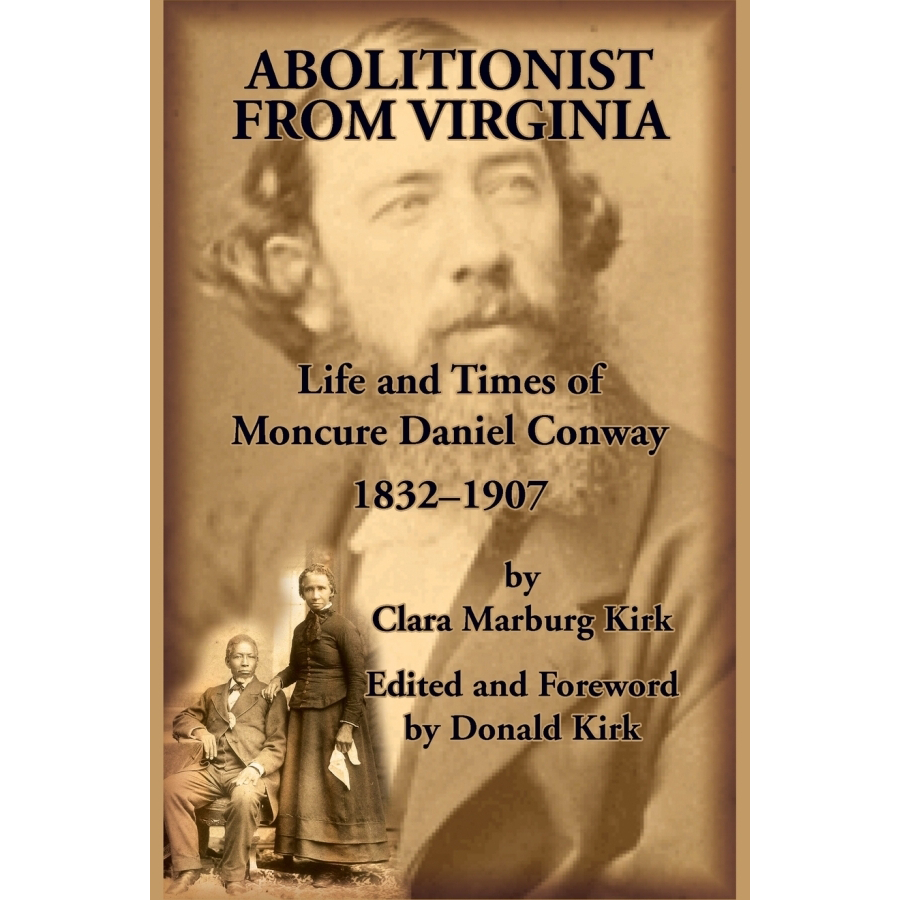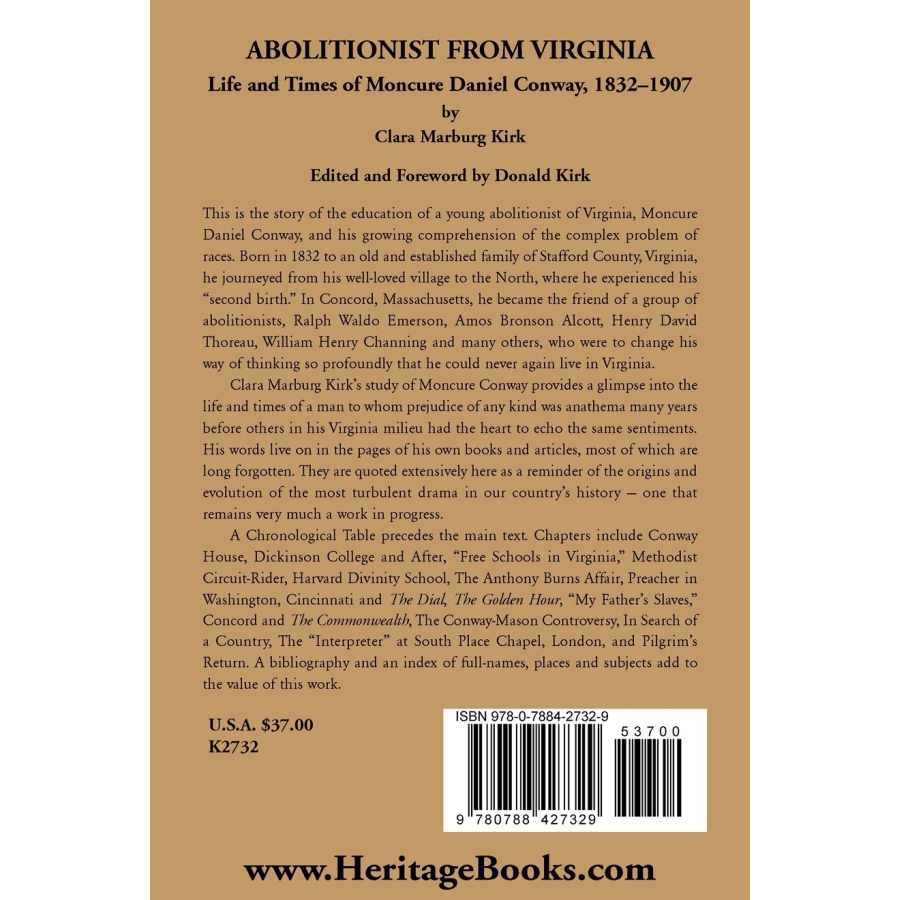Abolitionist from Virginia: Life and Times of Moncure Daniel Conway, 1832-1907
Couldn't load pickup availability
This is the story of the education of a young abolitionist of Virginia, Moncure Daniel Conway, and his growing comprehension of the complex problem of races. Born in 1832 to an old and established family of Stafford County, Virginia, he journeyed from his well-loved village to the North, where he experienced his "second birth." In Concord, Massachusetts, he became the friend of a group of abolitionists, Ralph Waldo Emerson, Amos Bronson Alcott, Henry David Thoreau, William Henry Channing and many others, who were to change his way of thinking so profoundly that he could never again live in Virginia.
Clara Marburg Kirk's study of Moncure Conway provides a glimpse into the life and times of a man to whom prejudice of any kind was anathema many years before others in his Virginia milieu had the heart to echo the same sentiments. His words live on in the pages of his own books and articles, most of which are long forgotten. They are quoted extensively here as a reminder of the origins and evolution of the most turbulent drama in our country's history — one that remains very much a work in progress.
A Chronological Table precedes the main text. Chapters include Conway House, Dickinson College and After, "Free Schools in Virginia," Methodist Circuit-Rider, Harvard Divinity School, The Anthony Burns Affair, Preacher in Washington, Cincinnati and The Dial, The Golden Hour, "My Father's Slaves," Concord and The Commonwealth, The Conway-Mason Controversy, In Search of a Country, The "Interpreter" at South Place Chapel, London, and Pilgrim's Return. A bibliography and an index of full-names, places and subjects add to the value of this work.
Clara Marburg Kirk; Donald Kirk, editor
2023, 5.5" x 8.5", paper, index, 372 pp.
ISBN: 9780788427329
101-K2732

